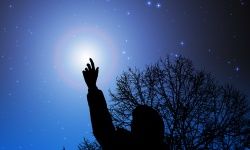
In the days before the world was so readily connected — before the internet, round-the-clock news stations, telephones and radio — humans relied on the natural world around them to make predictions and help guide their choices.
Science tells us that the most literal shooting star meaning is a meteor burning as it enters the Earth's atmosphere. But many cultures assign a deeper spiritual meaning to falling stars.
Advertisement
